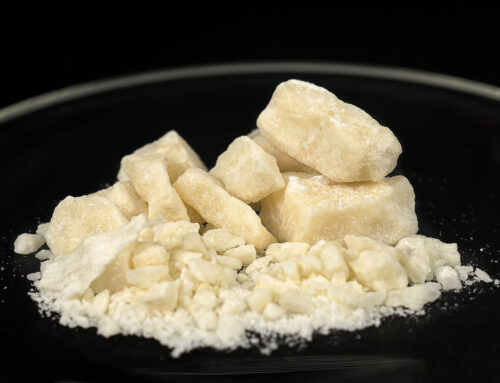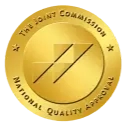Drug and Alcohol Detox Center
You’ve taken the first step and sought help for your addiction or substance abuse disorder, but your evaluation hasn’t gone as expected. A mental health professional has diagnosed you with another condition, such as major depression or anxiety. Now you’re left to wonder what came first: addiction or mental illness?
When you receive a diagnosis of both a substance abuse disorder and an additional mental health diagnosis, you have what professionals call a dual diagnosis. Dual diagnosis is often complex, with one condition triggering or exacerbating the other.
Many individuals have questions, such as “is alcohol a depressant? Could that be the cause of my mental health struggles?”
We’ve created this guide to help newly diagnosed individuals better understand the intersection between their addiction and secondary mental disorder. Once you recognize the relationship between substance abuse and mental health, you’ll have an easier time seeking appropriate recovery support.
Read on to explore the surprising link between alcoholism and mental health issues.
Is Alcohol a Depressant?
If you struggle with alcohol addiction, it might surprise you to learn that you may also meet the criteria for a mood disorder such as depression. It is common at first to be in denial about this diagnosis. The truth is that alcohol can cause depression, but it can also cause you to self-medicate by using alcohol or other substances.
How can alcohol be a depressant if it makes you feel so good and uplifted while you’re drinking?
Alcohol boosts the “happiness chemicals” in your brain, such as dopamine and serotonin. This boost is why drinking alcohol can initially cheer you up. Unfortunately, the boost takes a toll, leaving you deficient in these chemicals once the alcohol has left your system.
Similarly, drinking can also cause anxiety. As alcohol leaves your body, your brain chemistry will change as it struggles to adapt. These changes can create the same sensations you might experience during a panic or anxiety attack, even if you’ve never experienced them in the past.
With that in mind, it makes sense that anxiety and depression are the most common mental health disorders that foster a dual diagnosis. Addictive substances will change your overall brain chemistry over time. The more you drink, the more likely you are to experience the symptoms of these illnesses.
The Body-Mind Connection
If you’ve ever woken up with a hangover, you are familiar with the toll that alcohol takes on your body. Our bodies were not made to physically process the chemicals that are found in alcoholic beverages. As a result, your body suffers each time you drink, which can impact your overall quality of life.
Drinking and Sleep
A healthy human body needs sleep. When you drink alcohol, you might feel sleepy and doze off, but it will ultimately diminish your sleep quality, making it much harder to enter the REM portion of your sleep cycle.
If you get poor sleep, your mind will not have an opportunity to recover. Lack of sleep can make you feel ill and it may even lead to physical changes in the brain. Poor sleep hygiene can eventually cause or worsen mental health disorders.
Drinking and Physical Health
Additionally, hangovers are physically and emotionally unpleasant, and you’re less likely to leave your home and engage with others when you feel sad, shameful, or unwell. These negative patterns can become part of a vicious cycle, leading you to want to drink more to hide, instead of coping with your own behavior.
Drinking and Body Autonomy
Some individuals may even blackout after a long night of drinking. They may also “lose time” or experience gaps in their memory. It’s possible to lose track of how you made it home or you may even wake up in an unexpected location.
Blackouts on their own are scary, but the aftermath can be even more difficult for some people. You might experience anxiety about things you have done or said or worry about what others did or said to you.
Often, individuals who are prone to blackouts hear about their behavior secondhand, which can be scary and emotional, especially if you were violent or vulnerable.
The long-term implications of these “shame spirals” can often contribute to additional mental health struggles. Losing body autonomy can be traumatic, and you might seek more destructive coping mechanisms in the aftermath.
Using Alcohol to Self Medicate
In many cases, mental illness precedes addiction. If you are experiencing the symptoms of depression or an anxiety disorder, you’ll seek the most accessible form of relief. For many individuals, that’s alcohol.
You’re more likely to grow dependent on alcohol if it functions as a form of medication. This effect is why alcoholics don’t abuse alcohol to feel “drunk.” Most alcoholics consume alcohol to feel a baseline level of normalcy.
It’s easy to develop a dependence on alcohol because, on some level, self-medicating works. It can make you feel better, even if it’s just for a short period of time. Each time you drink, however, you’re damaging your brain and body permanently, making it a dangerous long-term solution to mental health challenges.
Likewise, some individuals use alcohol as a coping strategy. Understanding how to handle stress, anxiety, bad news, or interpersonal relationships takes skill. Individuals who did not learn these skills as children might rely on substances due to a lack of other options or tools.
Even if you only drink heavily in response to bad news or negative emotions, you can become dependent on alcohol to cope. Individuals with pre-existing mood disorders might struggle more with challenging emotions. When you seek treatment, you’ll learn active coping skills to use when you’d typically reach for a drink.
Does Alcohol Cause Depression?
So, is alcohol a depressant, and could it be the root of your dual diagnosis? The answer is yes.
Ultimately, alcohol can change your brain chemistry and lead to the onset of certain psychiatric disorders. It’s also common for individuals with these disorders to abuse substances in order to self-medicate. Whether your drinking has caused your illness or the other way around, you are worthy of recovery.
If You Need Support Atlanta Detox Can Help
If you need support to begin your recovery journey, the skilled and knowledgeable professionals at Atlanta Detox Center can help. We offer detox support and substance abuse recovery services, including individualized therapies. Contact us today to find hope for addiction and dual diagnosis treatment options.






